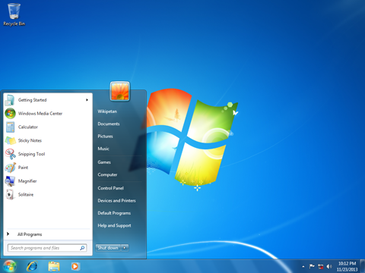
With nearly a decade of service, Microsoft is finally pulling the plug on its critically praised and loved version of Windows, Windows 7. Microsoft is set to stop giving active support and updates to Windows 7 on Jan. 14. Previously, Windows gave all legitimate users of Windows 7, Windows 8, and Windows 8.1 an easy upgrade path to Windows 10. However, not everyone, especially those on Windows 7, is convinced to upgrade to the latest version of Windows. Security researchers have pointed out how Windows 10 is perhaps the most intrusive version of Windows as the OS is known to send data back to Microsoft regularly.
A bit of hope for Windows 7 holdovers
However, there is a bit of upside to those who really want to hold on to Windows 7. Microsoft has promised to continuously update Windows 7's Microsoft Security Essentials to make sure that the OS version is well protected from new viruses, backdoors, and attacks.
And for those who finally want to upgrade to the latest version of Windows (especially gamers who want official support on Ryzen CPUs and access to DirectX 12), Microsoft still allows Windows 7, Windows 8, and Windows 8.1 to upgrade to Windows 10 for free. It's not clear when Microsoft will finally stop this free upgrade path. The original offer was only available for a year after Windows 10 launched in 2015. It's been four and a half years since, and the offer is still valid.
Holding on to 7
According to StatCounter, Windows 10 finally took over Windows 7 as the most popular version of Windows in January 2018, 3 years after the OS launch. By December 2019, Windows 10 was now installed in the majority of PCs, with 65.37% using the latest OS. There are still numerous Windows 7 PCs out there, as 26.82% still use the OS. The very unpopular Windows 8 and 8.1 sit at 1.29% and 4.87% respectively, with most users probably upgrading to the much more refined Windows 10. 1.29% of users are still using Windows XP, and 0.39% are on Windows Vista. These probably work machines with custom applications on them that rely on these versions of Windows to run.
The Future of Windows
With Windows 10, it's highly unlikely for Microsoft to release a new OS in the near future. Their official website states that Windows 10 is now treated much like new software today: As a service. Instead of releasing a new OS every few years, Microsoft will instead update parts of Windows 10. This is because of how Windows 10 was designed to be modular, allowing Microsoft to update the OS easily as new technology and innovations come into the foreground.
Ever since its release in 2015, Windows 10 has had eight major updates. These updates are quite significant as they have given Windows 10 compatibility patches with hardware (such as an updated scheduler that makes Ryzen processors much more efficient) as well as implementing new features (such as a light theme, upgrades to Microsoft's Edge Browser, Accessibility software, new font, Cortana updates).
The latest update, known as Version 1909 or the November 2019 update, made improvements to notification management, support for third-party digital assistants, such as Amazon's Alexa, on the lock screen, and integrated File Explorer's search with OneDrive.




